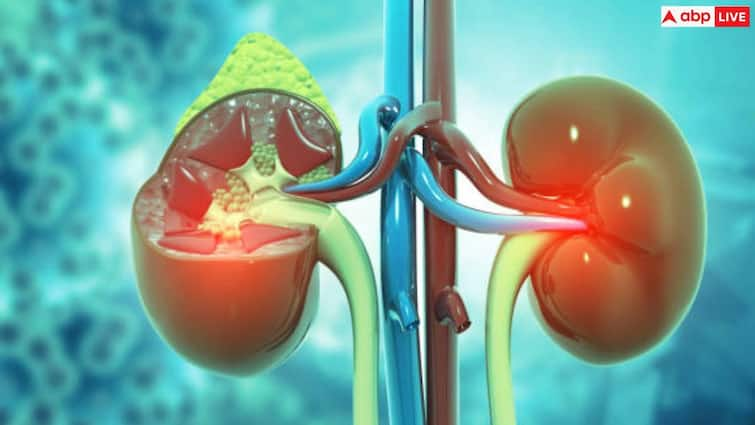According to the “World Health Organization” (WHO), obesity and fat can cause many diseases. Body mass index (BMI) is used to measure overweight or obesity and the accumulation of fat around the waist can cause many diseases. A BMI greater than 25.0 kg/m2 is considered overweight and greater than 30 kg/m2 is considered obesity. Obesity, measured by waist circumference, especially abdominal obesity, is increasing in our country. If you are obese, it can lead to kidney disease. >
According to the National Family Health Survey (NFHS), 40% of women and 12% of men suffer from abdominal obesity. This incidence is very high among the elderly and urban population. Android or apple-shaped abdominal obesity (accumulation of fat in the upper body, such as the viscera or abdominal region) contributes to metabolic diseases and poor health.
“Kidney disease improves overall outcomes” (Kidney Disease (KD) ) according to KDIGO) is defined as an estimated glomerular filtration rate (eGFR) for at least three months < Defined as > 60 mL/min/1.73 m2 or the presence of markers of kidney damage (urinary abnormalities, structural abnormalities). The prevalence of kidney disease in our country varies from 3 to 10% according to different studies. This highlights the importance of developing a national registry. The incidence of kidney disease is also increasing and each year, more than 100,000 new patients require renal replacement therapy (dialysis/kidney transplantation).
Also read: Also read: ;Skin Cancer: Who is Most Affected by Skin Cancer, Know the Reason
How Obesity Affects the Body< /p> p>
Obesity with increased visceral fat affects every organ in our body. This leads to diabetes, high blood pressure, coronary heart disease, stroke, obstructive sleep apnea and many other diseases. This not only impacts physical health but also the psychosocial functioning of individuals. This reduces their productivity, increases disability-adjusted life years (DALYs) and direct health care costs.
Risk factors
Body fat is considered a dynamic factor. endocrine organ. It produces various hormones like leptin and adiponectin and their actions are altered in obesity, leading to an increase in the inflammatory state of our body. Increases insulin resistance, which leads to high blood pressure and diabetes, which has a direct effect on the kidneys, causing kidney damage. Increased central fat is responsible for metabolic syndrome and causes damage to all target organs.
Obesity affects the kidneys
Obesity that directly affects the kidneys is called obesity-related glomerulopathy. This is due to an increased workload on the kidneys, leading to glomerulomegaly (increased size of the glomerulus) and increased excretion of protein in the urine. Several studies have shown that obesity is an independent risk factor for chronic kidney disease. This pre-existing CKD. accelerates the progression of kidney stones, promotes kidney stone formation, increases the risk of end-stage kidney disease in the kidney donor, and also affects the kidneys in the post-kidney transplant stage. Obesity is only associated with better outcomes in the dialysis population in a process called reverse epidemiology.
Reversal of established kidney disease associated with obesity is only partial, so finding ways to identify and prevent it is critical. Lifestyle changes, such as limiting caloric intake and increasing physical activity, have been shown to contribute to weight loss and preventing progression of established kidney disease. Some new medications, such as glucagon-like peptide-1 (GLP-1) analogues and bariatric surgery in obese individuals, have shown promise in improving renal and general outcomes. Despite the availability of new methods to improve obesity outcomes, the age-old belief that prevention is better than cure remains.
Disclaimer: Some of the information given in the news is based on media reports. Before implementing any suggestion, you must consult the concerned expert.
Also read:Can workload even kill you? Questions raised after death of 26-year-old girl
Source link
